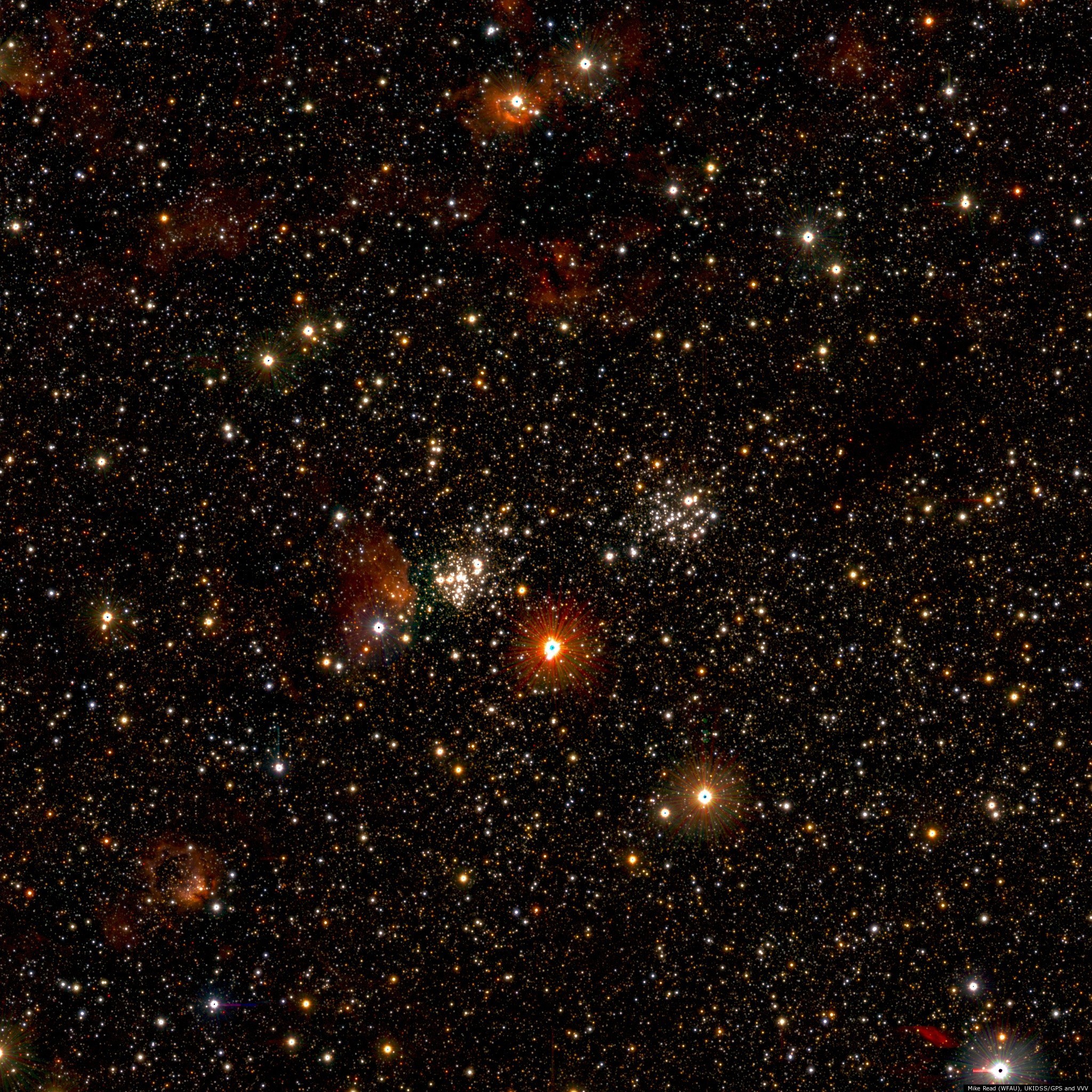J.E.D
Gold Member
- Jul 28, 2011
- 14,159
- 2,229
- 280
- Banned
- #1

The new picture, which was released today (March 28), combines infrared images of the Milky Way taken during sky surveys by two different instruments, the UK Infrared Telescope in Hawaii and the VISTA telescope in Chile. The photo is part of a 10-year project that is gathering mountains of data to help guide future research, scientists said.
"This incredible image gives us a new perspective of our galaxy, and illustrates the far-reaching discoveries we can make from large sky surveys," Nick Cross, of the University of Edinburgh, said in a statement. "Having data processed, archived and published by dedicated teams leaves other scientists free to concentrate on using the data, and is a very cost-effective way to do astronomy."


